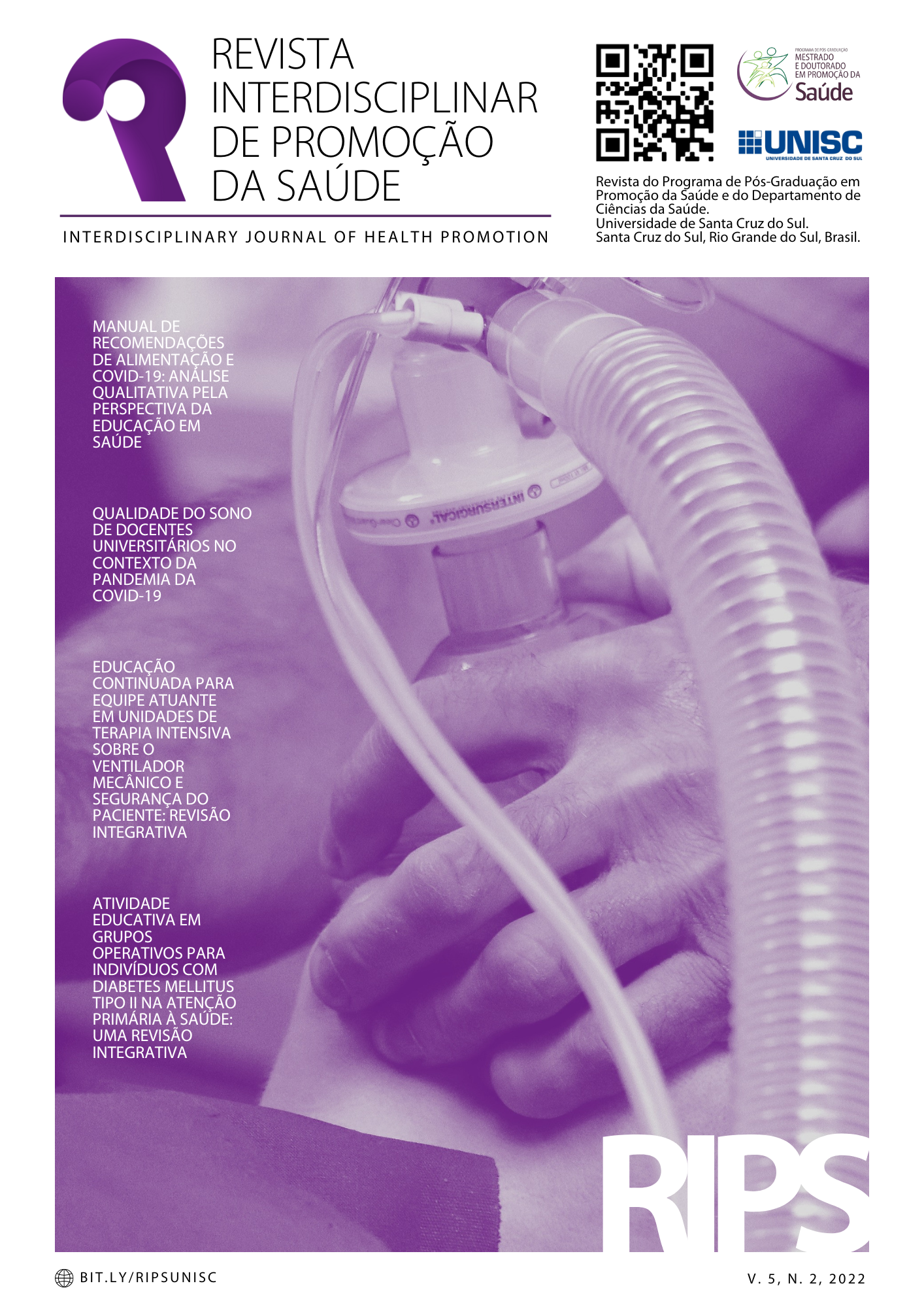Manual of food recommendations and COVID-19
qualitative analysis from the perspective of health education
DOI:
https://doi.org/10.17058/rips.v5i2.17636Abstract
Introduction: The COVID-19 pandemic has accentuated social problems related to control of disease and human rights, including ensuring access to adequate food. Based on this context, this paper seeks to realize a qualitative analysis of the Manual for Food and COVID-19 Recommendations, launched by the Ministry of Health, during the pandemic. Objective: promote reflections about the notion of health education, in order to collaborate with regard to practices that take into account the need to adapt food and nutritional recommendations, based on the realities of the communities. Method: a document analysis was developed. For the tensioning of the material, the discourse analysis was chosen, considering that this practice takes language as something broader than speech or writing acts, based on the analysts subjectivities. Results: there are faults in the Manual. It’s necessary to expand the concept of health education to the scope of public policies, involving the community and empowering that with knowledge that comes from their realities. This objective is achieved through educational projects in which reliable and safe knowledge is shared, so that the population can adapt it to their socioeconomic context. Conclusion: in view of this, it was noticed that the Manual has weaknesses, because it not understanding the reality of many Brazilians and the economic and social consequences caused by the pandemic, which makes a dialogue between the parties unlikely, making the production of products unfeasible.
Downloads

Downloads
Published
How to Cite
Issue
Section
License
A submissão de originais para este periódico implica na transferência, pelos autores, dos direitos de publicação impressa e digital. Os direitos autorais para os artigos publicados são do autor, com direitos do periódico sobre a primeira publicação. Os autores somente poderão utilizar os mesmos resultados em outras publicações indicando claramente este periódico como o meio da publicação original. Em virtude de sermos um periódico de acesso aberto, permite-se o uso gratuito dos artigos em aplicações educacionais e científicas desde que citada a fonte conforme a licença CC-BY da Creative Commons.



